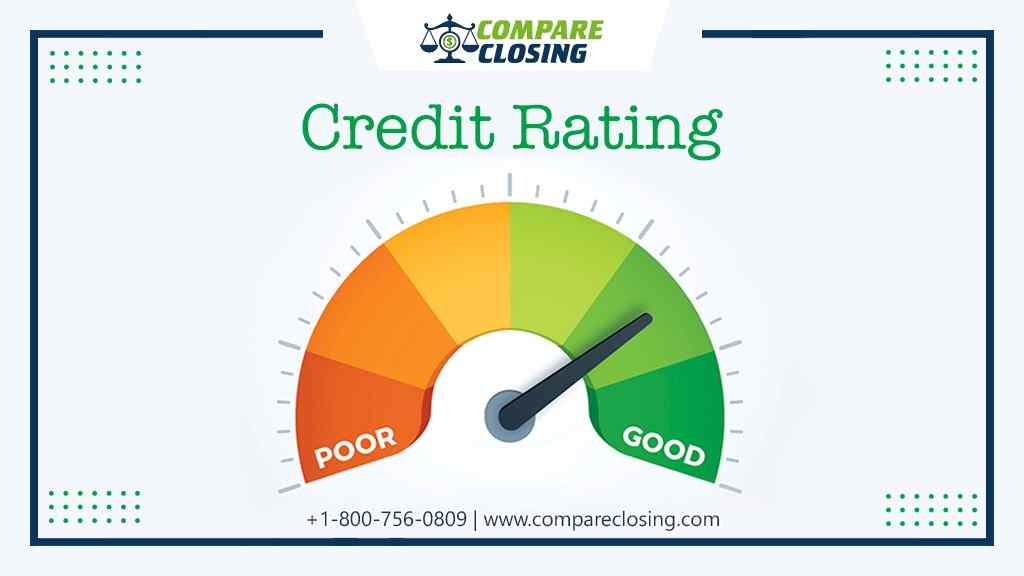Table of Contents
- What Are Netting Escrows & How Does It Work?: The Best Guide - January 2, 2024
- The Secret About Prescriptive Easement: Top Guide 1 Must Know - December 4, 2023
- About Home Equity Loans In Texas And How Can One Obtain It - November 27, 2023
Introduction Credit Ratings
When it comes to lending, an individual’s credit plays the most significant role in terms of loan qualification and availing the best loan terms.
Every lender before proceeding with the loan will check your credit before lending you the amount of money that you intend to borrow. In this post, we will know what is credit rating.
What is a Credit Rating?
Credit rating is just a score that evaluates the quality of the business, government, or individual and judges them on their ability to repay the debt on time.
Credit ratings determine the likelihood that the borrower will pay back the loan without defaulting.
The ratings are given by credit rating agencies such as TransUnion, Equifax, and Experian for individuals and sovereign and corporate ratings for governments and businesses.
A credit rating can be assigned to any entity that seeks to borrow money like individuals, corporations, or the government.
Credit ratings are applied to businesses and governments. Sovereign credit ratings are applied to governments and corporate credit ratings apply solely to corporations.
When it comes to individuals looking to borrow money, it is not the credit ratings that are applied but it is credit scores that are taken into consideration.
Credit scores are represented in numbers ranging anywhere between 300 to 850.
If you have a high credit rating this means you have a high possibility of paying back the entire debt without any issues.
Whereas, a poor credit rating means that the borrower in past, had challenges paying the debt and might follow the same pattern in the future.
Understanding Credit Rating
To understand credit ratings, we just need to understand two terms.
- Investment Grade:- Likely enough to meet payment obligations that banks are allowed to invest in them
- Speculative Grade:- Which are not rated as investment grade, have a high risk of default, referred to as junk.
In Fitch’s credit ratings, a bond is considered as investment grade if the credit rating is BBB or higher. Whereas, bonds that are rated BB+ and below are considered to be speculative grades.
In the case of Moody’s credit ratings, the bonds with Baa3 or higher ratings are considered as investment grade and bonds rated Ba1 and lower are considered to be speculative grades.
Types of Credit Ratings
Good Ratings: The ratings with Aaa, Aa1, Aa2, and Aa3 are considered to be the ratings with the highest quality. A1, A2, A3, Baa1, Baa2, Baa3 are considered medium grades.
Both the highest and medium credit ratings are considered to be investment-grade ratings.
Bad Ratings: Ba1, Ba2, Ba3, B1, B2, and B3 are considered to be significant and high-risk credit ratings. Caa1, Caa2, Caa3, Ca, and C are considered to be very high-risk credit ratings. These ratings fall under speculation grade.
For individual profiles, a credit score above 640 is considered to be a good score. And anything below 600 is considered to be a poor score.
Importance of Credit Ratings
Credit ratings or FICO scores depend on significant due ingenuity directed by the rating agencies who should take a fair and objective perspective on the borrower’s financial circumstance and ability to support/repay the loan.
This can affect whether or not a borrower can be qualified for the loan but also the interest rate which would be charged on the loan.
Credit ratings hold a crucial part in helping the investors to decide whether or not to buy the bonds. A poor credit rating shows potential risk in investment as the possibility of the company defaulting on the bond is always higher.
Conclusion
All the credit rating agencies have their own algorithm to rate the company, government, or individual.
It is imperative that you maintain your credit rating in order to keep your profile investment grade so that in case you need to borrow the money you have a higher chance of getting the investors.
Individuals looking to borrow money simply need to keep their credit lines and limits below 35% of the total allocated limits.
And make sure you make all the payments on time without any delay. This will help you to maintain a good credit score which will help you to obtain the best deals while borrowing money.
Amanda Byford
Amanda Byford has bought and sold many houses in the past fifteen years and is actively managing an income property portfolio consisting of multi-family properties. During the buying and selling of these properties, she has gone through several different mortgage loan transactions. This experience and knowledge have helped her develop an avenue to guide consumers to their best available option by comparing lenders through the Compare Closing business.





